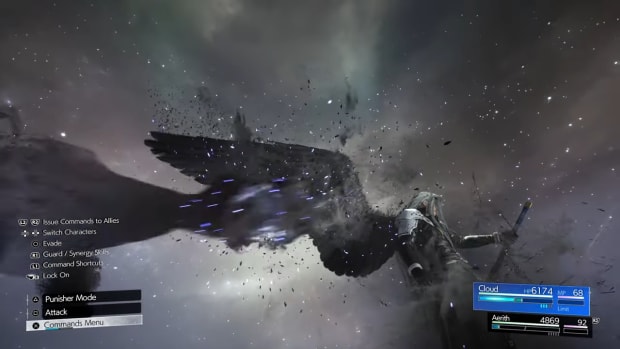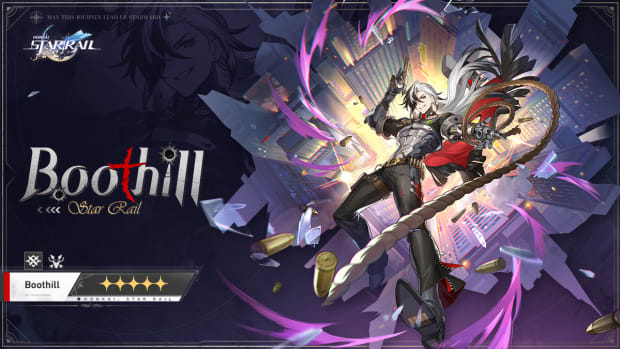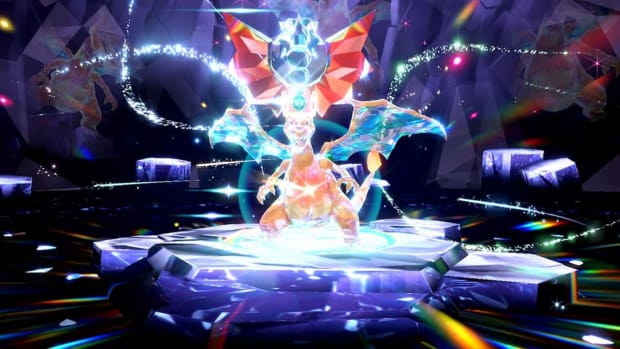
How ID@Xbox helps indies to give you better, more varied games
Ten years ago, getting noticed as an indie developer was much easier than it is today. Every single day, around 34 games are released on Steam, and it’s almost impossible to cut through all of that noise. Developers can partner with a publisher – that’s always an option – but even that doesn’t guarantee that your game will get noticed. Hell, even making a good game is no guarantee of success.
On one hand, the barriers to entry for new indie developers are lower than they’ve ever been. On the other, every game is just another droplet of water pouring through the broken floodgates.
James Brooksby, CEO of Absolutely Games – who started his previous studio, Born Ready Games, in 2007, at the height of Xbox Live Arcade – reflects on this change: “It was easier to get noticed, much easier to talk to platforms, much easier to get promotion – because there was so little coming through,” he says. “And that has changed a great, great deal. Some people get lucky, and some people make fantastic things and get unlucky. But it's certainly the hot topic that we all talk about – after we've made a game, and we've put a lot of time and effort into it, how do we get people to notice?”
ID@Xbox is Microsoft’s attempt to answer this question. While it doesn’t guarantee success, it allows indies to self-publish on Xbox and Windows, where the developer will take the lion’s share of the profits if their game is successful.
General manager Chris Charla has been working with indies at Xbox for over a decade, helping underrepresented developers and unknown indies, along with established hits, to get their games on Xbox. Charla is in a unique position as a curator, working with his team as the tastemakers of the console indie scene.
For Brooksby, being one of the first games on ID@Xbox with Strike Suit Zero: Director’s Cut (Charla tells me they shortlisted 100 down from 1,000 applicants at the start) was one of the only reasons his studio survived.
“You're not giving away a large chunk of the revenue,” Brooksby says. “We were self-publishing direct to a platform such as Xbox, and any success supported us in what we wanted to do next. It powered us for many years to come. We sat on top of that income, we made prototypes of what we wanted to do next. We were able to go through adversity as well.”
On Christmas Eve, 2013, Born Ready Games’ Guildford office was affected by the same flood that took No Man’s Sky developer Hello Games out of action for a while. The damage at Born Ready wasn’t as catastrophic as it was for Hello Games, since the team had developers in the office who managed to save most of the PCs, but all of the power outlets were submerged and filled with sandy water, and the entire space needed repairing before it would become workable again. The money from its success on Xbox Live Arcade was what kept them afloat.
Outside of allowing helping developers to generate money, the ID@Xbox program also gets them access to shows such as GDC and Gamescom, but Charla says information sharing is just as important.
“The other big thing is sharing the resource that we have, which is information,” Charla explains. “We see thousands of games launch every year, and independent devs are maybe heads down for two, three years on the game. When they come up, the entire marketing landscape has changed. Four years ago, if you just got a booth at PAX, you're guaranteed to be a best seller. Well, that's not true anymore.
“This is even down to the best day of the week to launch, the best time of the year to launch. We share all this information. We don't share other studios’ private information, like sales, but we share information in aggregate about how different genres are doing, and that sort of thing, and then we thoughtfully get out of the way.”
The next step in this mission is the Developer Acceleration Program, which aims to support developers from underrepresented groups and help them to publish new experiences to Xbox. While it launched in 2019, Microsoft has only just begun speaking publicly about this initiative because it wants to cast the widest possible net, in the hopes of securing more interesting games developed by people with broad life experiences. So far, Xbox has signed around 120 games through the program.
“Our goal is to make sure that players have the broadest variety of games when they turn on their Xbox,” Charla says. “And so when we look at games that we want in front of people's eyes, we look at everything, and we really think about the variety. And so, when we encourage devs and talk at a Dev Fest – which we do under NDA – or that kind of thing, we talk a lot about commercial success, and how to maximize your commercial success on Xbox. But we're also always really clear to say at the beginning of those talks, like, ‘Hey, we're going to talk about commercial success, because that's where our interests and your interests perfectly overlap, but there are a lot of reasons to make a game. There are creative reasons, there are artistic reasons, and we support all those things.’
“So we don't give more support to a game that seems like it's in a trendy genre than we do to a game that seems like it’s just a cool game. Because if we only promoted games that seemed like they were hot, we'd only be promoting one kind of game. And so since our job is to provide variety like [for example], an awesome stealth World War II game, a cool narrative experience, and an interesting small puzzle game – we want to make sure we're showing tons and tons of different things to players at all times.”
It seems like a smart way of thinking about curation at a time when big publishers are realizing that chasing trends will always see you finish in last place. By the time many of the big players realized the battle royale boom was happening, people had moved on. Then there are games like Among Us, which had been out for years before it saw success thanks to a handful of YouTube attention. On the other side, you have games like Vampire Survivors, which basically plays itself but captured the zeitgeist through its dog-treat design philosophy.
“Before the early 2000s, when I used to pitch games a lot, it got to a point where there was only X number of publishers, and there was actually only X number of winning pitches,” Brooksby says. “So you would go in with people they would say, ‘So, which one have you got?’ It was either an FPS game, a third-person action-adventure, a racing game, or a sports game. That's changed so much.
“I'm so glad that we have the platforms we do because that world was starting to get a little dull. I don't think it was good for gamers at all, and I don't think it was good for the industry, because even though it meant that some people were making good money, I don't think that diversity was going to last. I think we could have ended up boring our audience to death. Whereas now, almost anything is possible. And it's great that we have every platform embracing endless possibilities. Last year with Vampire Survivors, I was cheering at the BAFTA Awards, I was leaping out of my seat.”
You only have to look at Xbox’s Gamescom offerings to see how much the industry has changed. There’s Stalker 2, a hardcore FPS with horror elements. There’s Another Crab’s Treasure, which is a soulslike where you play as a crab. There’s Little Kitty, Big City, where you play as a cat exploring a sprawling urban environment. A few months ago, Xbox took me to Summer Game Fest in LA to show me the latest Forza game, along with a new indie dungeon crawler with social elements called Dungeons of Hinterberg. There’s no distinction between the indie title and the big triple-A racing game – the same demo room, the same time slots. The big publishers are taking indies seriously.
The next step, Charla tells me, is to make the process of working with Xbox as seamless as possible. “I think that we can make the whole publishing flow experience better. We still get questions from devs like, ‘How do I change my address for the dev kit? Where do I put my metadata?’ There are still questions like that. We work every day to make that easier, but my dream will probably never get here.
“I want to make Xbox development boring. And I mean that in the best way possible. I want to make it so straightforward that it's like, ‘Oh, the Xbox version is just done.’ So that way, instead of having to spend their considerable intelligence and talent on getting through the process, they can put all that effort into the game. I think we do a good job now, but we're definitely in a place where we can improve ways of making a smooth passage onto the platform.”







